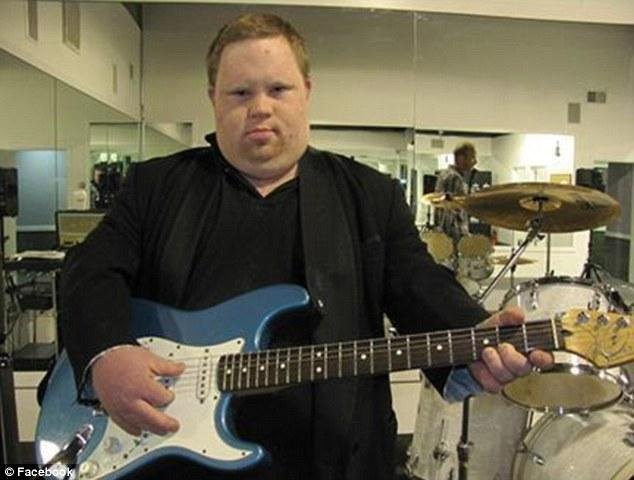In the news
The news and media below, listed in chronological order, have helped share the story of Ethan’s legacy and the ongoing impact of the Ethan Saylor Alliance’s work. For all media inquiries, please contact us.
Ethan Saylor's Legacy and Impact on Police Training in Maryland WYPR, 1/26/2023
Intro: In the decade since Ethan Saylor was killed during a clash with sheriff’s deputies, hundreds of Maryland police recruits and first responders have been trained in communicating with people with disabilities. We take a look inside that training with Lisa Schoenbrodt, a professor at Loyola University Maryland and co-owner of LeadAbility LLC, and self-advocate educator Kayla Grange. And Patti Saylor, Ethan's mom, shares her hopes for his legacy.
The unnecessary death of Ethan Saylor and what has changed in 10 years The Washington Post, Updated 1/07/ 2023, Perspective by Theresa Vargas
The 26-year-old with Down syndrome who died after deputies tried to force him from a movie theater left a large legacy. It should be larger.
Loyola’s LEAD and ASPIRE programs provide online training for first responders to understand and communicate with people with intellectual and developmental disabilities by Molly Robey
Regional pilot program aims to help marginalized members of our communities.
How people with disabilities are training the police Today, 7/31/2020
How One Mother's Battle Is Changing Police Training On Disabilities NPR, 4/13/2019, Meg Anderson
Police Being Trained On How To Deal With People's Disabilities, By People With Disabilities CBS News Baltimore, 2/12/2019
You Can't Talk About Us Without Us: Training Officers About People with IDDs WYPR, 1/17/2019, Sheilah Kast & Melissa Gerr
Intro: Sometimes tragedy gives birth to social change. Six years ago Ethan Saylor, a young man with Down Syndrome, died in an encounter with law-enforcement. Could adequate training have changed that outcome? Ethan’s mother Patti Saylor thinks so. She tells us about officer training designed to help contacts with people with intellectual and developmental disabilities, or IDDs. And we meet Lisa Schoenbrodt, a Loyola professor coaching people with IDDs to perform reality scenarios for the trainings, and Patrick Chaney, an actor with autism.
A man with Down syndrome pretended to be robbed – to help the police The Washington Post, Perspective by Theresa Vargas, 9/01/2018
Speech pathology and education faculty members awarded grant to train self-advocate educators for law enforcement Stephanie Weaver, 5/22/2018
Ethan Saylor Alliance for Self-Advocates as Educators Tash.org, by Ben Gibbons, 2/8/2017
Police training expands for encounters with people who have developmental disabilities The Baltimore Sun, by Tim Prudente, 1/18/2016
RELATED MEDIA & LINKS
Teacher of Patience A 30-minute documentary by Carmen Vincent
Over 20 years after Emily Felter is diagnosed with Down syndrome, paramedic (and Emily's father) Tom develops a presentation to share her story with other first responders. As the Felters work to raise disability awareness, they come face-to-face with the struggles and joys of their daily lives.
Ethan Saylor Memorial Scholarship
Ethan Saylor lived his life to the fullest. Whether it was rocking out to music, working with law enforcement, or playing the guitar, when Ethan wanted to do something, nothing was going to stop him. This scholarship is designed to help give individuals with Down syndrome to pursue their own dreams, regardless of any perceived limitations. This award is given annually to those who display the same drive and determination to pursue their dreams as Ethan had. Whether your dream is to rent a limo to party with your friends, or to fly with your family for a fun vacation – the Ethan Saylor Memorial Scholarship can support bringing these dreams to life.
Ethan Saylor died in 2013 after an altercation with police at a Maryland movie theater. Patti Saylor
Patti Saylor says that after her son Ethan's death in 2013, she realized that police officers need more training in working with people who have intellectual and developmental disabilities. Meg Anderson/NPR
Loyola University MD / WYPR



